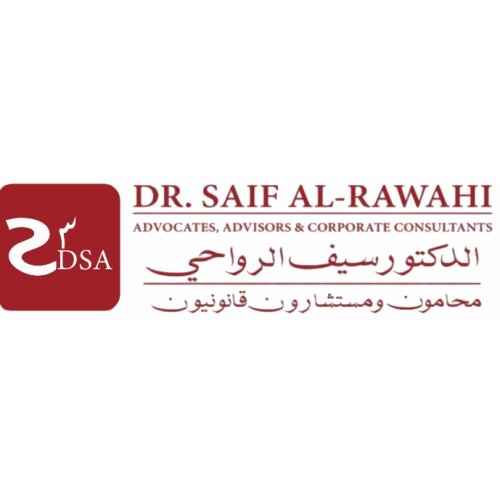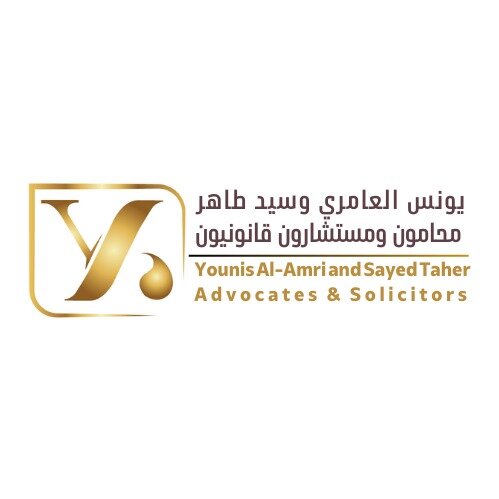Best Project Finance Lawyers in Oman
Share your needs with us, get contacted by law firms.
Free. Takes 2 min.
Or refine your search by selecting a city:
List of the best lawyers in Oman
About Project Finance Law in Oman
Project finance is a specialized area of law and finance where large-scale infrastructure and industrial projects are funded and developed. In Oman, project finance typically involves major undertakings in sectors such as energy, oil and gas, water, transport, and telecommunications. The projects are often funded using the projected cash flows of the project, rather than relying entirely on the balance sheets of the project sponsors. This method of financing enables limited recourse for lenders and allows sponsors to take on substantial undertakings with reduced risk exposure.
In Oman, the legal framework surrounding project finance has evolved over recent decades, driven by economic diversification efforts and increased foreign investment. The law integrates elements of commercial law, contract law, banking regulations, and sector-specific rules. An understanding of local regulations and the intricacies of government approvals is crucial for successful project finance transactions.
Why You May Need a Lawyer
Project finance transactions are inherently complex and feature a multitude of stakeholders, including governmental bodies, international and local banks, private investors, and contractors. Here are some common situations where expert legal advice is essential:
- Drafting and negotiating project agreements, such as concession agreements, offtake agreements, or supply contracts
- Conducting due diligence on regulatory compliance, land titles, and environmental permits
- Structuring financial arrangements and advising on risk allocation strategies
- Navigating local licensing and regulatory requirements
- Securing approvals and permits from government authorities
- Advising on tax implications and incentives
- Resolving disputes between stakeholders or with government authorities
- Ensuring compliance with anti-corruption and anti-money-laundering laws
Engaging a lawyer experienced in Oman’s project finance environment will help you identify potential risks, avoid costly pitfalls, and negotiate favorable terms.
Local Laws Overview
Project finance in Oman is governed by a mix of general and sector-specific laws. Some key aspects include:
- Foreign Investment Law: Allows foreign investors to own 100 percent of companies in certain cases, but some sectors are restricted or require local participation. The Ministry of Commerce, Industry, and Investment Promotion oversees these applications.
- Commercial Companies Law: Sets out the legal requirements for establishing and managing companies in Oman, including joint ventures and Special Purpose Vehicles (SPVs) often used in project finance.
- Secured Transactions Law: Deals with the registration and enforcement of security interests, which is crucial for lenders in project finance deals.
- Public-Private Partnership (PPP) Law: Provides the framework for collaborations between the private sector and the Omani government for infrastructure and service projects.
- Sector Regulations: Energy, utilities, and transport projects are often subject to approval and regulation by specific government entities, such as the Authority for Public Services Regulation (APSR) for electricity and water projects.
- Taxation: Oman imposes corporate income tax and, in some cases, withholding tax on certain payments. There are investment incentives for projects in strategic sectors or under PPP arrangements.
- Dispute Resolution: Oman has a developed court system and recognizes arbitration as a valid means of settling commercial disputes, including those arising from project finance transactions.
Working with a lawyer who understands these laws is important to facilitate approval processes, mitigate risks, and structure transactions to meet legal and business objectives.
Frequently Asked Questions
What is project finance and how is it different from traditional corporate finance?
Project finance relies on the future cash flows of a specific project to secure debt and equity. In contrast, traditional corporate finance depends on the overall assets and creditworthiness of a company. Project finance isolates project risks and may use a Special Purpose Vehicle to ring-fence liabilities.
Can foreign investors participate in project finance deals in Oman?
Yes, Oman encourages foreign investment in many sectors. However, some industries may require local participation or have restrictions. Foreign investors must comply with licensing and regulatory requirements set by Omani authorities.
What types of projects are typically financed through project finance structures in Oman?
Common projects include power plants, renewable energy installations, water desalination plants, roads, ports, airports, and large industrial developments.
What are Special Purpose Vehicles (SPVs) and why are they important?
An SPV is a legal entity created for the sole purpose of executing a specific project. It helps segregate project assets and liabilities, making it easier for lenders and investors to manage risks and recourse.
Is government support or guarantees common in Omani project finance deals?
Government support, such as guarantees or offtake agreements, can be found in projects deemed strategic to Oman’s economy, especially within public-private partnerships.
What security can lenders typically obtain in project finance transactions?
Lenders may take security interests over project assets, cash flows, bank accounts, shares in the SPV, and project contracts. The new Secured Transactions Law enhances clarity on registration and enforcement.
What approvals are required for launching a project finance transaction in Oman?
Approvals typically include foreign investment licenses, sector-specific permits, environmental clearances, and business registrations. Approval processes can vary depending on the project sector and size.
Are there any tax incentives in Oman for project finance investments?
Oman offers tax incentives for investments in specific sectors or free zones and for projects that align with national development goals. Each project must be assessed individually to determine eligibility.
How are disputes resolved in project finance transactions?
Disputes may be resolved through commercial courts or arbitration, both of which are commonly used in Oman. Many contracts specify arbitration at an agreed forum, often under international rules.
What are the typical risks that must be managed in Omani project finance deals?
Risks include regulatory changes, construction delays, cost overruns, changes in market demand, financing risks, and currency or political risks. Legal counsel can help develop strategies to mitigate these risks contractually and through insurance.
Additional Resources
If you are seeking further guidance on project finance in Oman, the following resources and organizations can be valuable:
- Ministry of Commerce, Industry, and Investment Promotion - the main body for company registration and foreign investment
- Authority for Public Services Regulation (APSR) - governs the utilities and energy sectors
- Oman Chamber of Commerce and Industry - offers business services and guidance for investors
- Public Authority for Investment Promotion and Export Development (Ithraa) - provides information about incentives and investment procedures
- Oman Centre for Governance and Sustainability - resources on responsible business practices
In addition, many international law firms and local legal practitioners in Oman specialize in project finance and can offer tailored advice.
Next Steps
If you are planning to engage in a project finance transaction or need advice related to a specific project in Oman, consider the following steps:
- Identify the nature and scope of your project, including the stakeholders involved and the sector regulations that may apply.
- Gather documentation related to your business, investment structure, and available financing options.
- Consult a legal professional experienced in project finance and Omani law to assess regulatory requirements, risk allocation, and contractual frameworks.
- Prepare a thorough due diligence checklist to uncover potential legal, financial, or regulatory issues.
- Engage with relevant government authorities early to understand permitting and licensing steps.
- Negotiate and draft project documents with legal oversight to ensure all parties' interests are protected.
- Monitor compliance and remain updated on regulatory changes throughout the project lifecycle.
Early legal advice is highly recommended to safeguard your interests and ensure a smooth project finance process in Oman.
Lawzana helps you find the best lawyers and law firms in Oman through a curated and pre-screened list of qualified legal professionals. Our platform offers rankings and detailed profiles of attorneys and law firms, allowing you to compare based on practice areas, including Project Finance, experience, and client feedback.
Each profile includes a description of the firm's areas of practice, client reviews, team members and partners, year of establishment, spoken languages, office locations, contact information, social media presence, and any published articles or resources. Most firms on our platform speak English and are experienced in both local and international legal matters.
Get a quote from top-rated law firms in Oman — quickly, securely, and without unnecessary hassle.
Disclaimer:
The information provided on this page is for general informational purposes only and does not constitute legal advice. While we strive to ensure the accuracy and relevance of the content, legal information may change over time, and interpretations of the law can vary. You should always consult with a qualified legal professional for advice specific to your situation.
We disclaim all liability for actions taken or not taken based on the content of this page. If you believe any information is incorrect or outdated, please contact us, and we will review and update it where appropriate.
Browse project finance law firms by city in Oman
Refine your search by selecting a city.

















